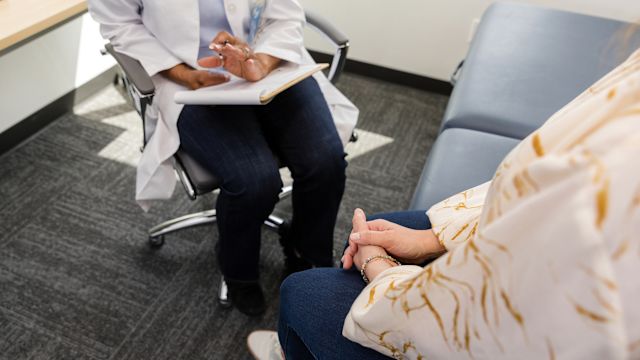Updated on October 27, 2025.
Receiving a cancer diagnosis can be a life-changing event. While it’s important to gather as much information as possible about your diagnosis and treatment options, a cancer diagnosis can also be overwhelming. It can be difficult to know where to begin.
Here are some important questions to ask your healthcare providers to help you get started.
What type and stage of cancer do I have?
Ask about the specific type of cancer you have, the stage of the cancer, the grade of the tumors, and if the cancer has spread anywhere else in the body. If your healthcare provider cannot answer all of these questions, ask what additional tests you need. This is essential information that will help you and your healthcare providers decide how the cancer can be treated.
What are my treatment options?
How a cancer is treated will depend on the type of cancer and many other factors. Ask your healthcare providers to explain your treatment options. Common treatment options for cancer include surgery, chemotherapy, radiation therapy, immunotherapy, and targeted therapy. Ask your healthcare providers how each treatment works.
What are the goals of treating my cancer?
Every cancer is different and every person with cancer will have different treatment goals. In some cases, the goal may be to cure the cancer or keep the cancer in remission. In other cases, the goal may be to slow the growth of the cancer. Ask your healthcare providers about your prognosis and the goal of treating the type of cancer you have.
What are the potential benefits, risks, and side effects?
Ask about the potential benefits and risks associated with each treatment, including the common side effects and potential long-term complications. Also ask what you can do to ease side effects and reduce the risk of complications.
How will the treatment impact my daily life?
Cancer treatment can affect many aspects of your daily life including work, relationships, and your ability to perform tasks like preparing food or taking care of your home. Ask your healthcare provider about the potential impact of treatment on your daily life. This can help you understand what to expect and plan ahead.
When do I need to start treatment?
In some cases, cancer treatment will need to start immediately. In other cases, treatment might be delayed. For some types of cancer, healthcare providers may recommend “watchful waiting.” During watchful waiting, healthcare providers will monitor the cancer and only begin treatment if the cancer progresses. Also ask about the treatment schedule. A treatment schedule is the length of time for each step in a treatment plan and how often treatment will be given during each step.
What can you expect after treatment?
Ask your healthcare providers about recovery, follow-up appointments, tests to look for changes in the cancer or your health, and what you can do to keep yourself as healthy as possible, including exercise and nutrition.
Can you recommend support or resources?
Coping with cancer can be emotionally and physically demanding. Ask your healthcare provider about support services. Examples include counseling, support groups, and oncology social workers. Also ask about reliable sources of information and resources that can help you learn more about your diagnosis.
Remember, these questions are a starting point for your conversation with your healthcare providers. You will have additional questions and more specific questions as you learn more about the cancer. You may want to keep a journal where you write down how you are feeling and any questions you have. It can help to bring a list of questions to your appointments.







